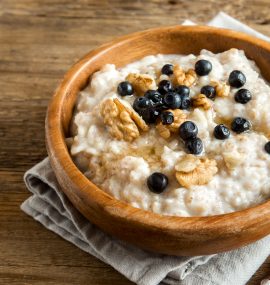Unsurprisingly, cardiorespiratory fitness, measured as peak oxygen consumption, declined for members of all four groups over 10 years. But the exercisers showed significantly lower decline (4.7 percent) than the control group (9.6 percent). Vigorous exercisers showed even lower decline (3.0 percent). Average waist circumference increased significantly more for the control group (2 inches) than the exercisers (less than one-half inch). Mean arterial blood pressure dropped for all participant groups over 10 years. Curiously, blood pressure for the low moderate exercisers declined the most (5 mm Hg) relative to the control group. Fasting insulin levels decreased significantly (in a healthy direction) for the lower moderate exercisers compared to the control group. Blood glucose increased for all groups over 10 years with no significant differences between the groups. This lack of differences may have reflected the fact that about half of the participants were taking medications that could affect blood sugar levels.
more






